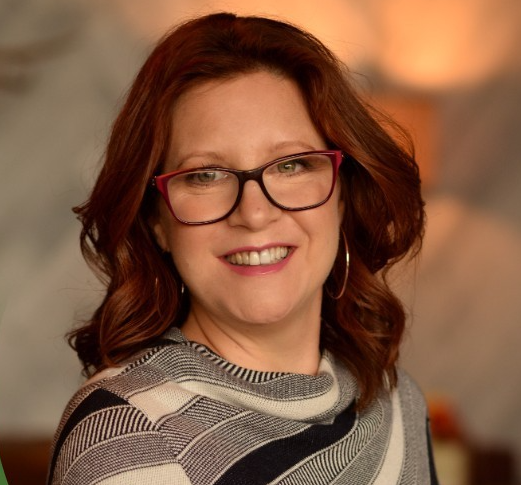Too Many Meetings? 5 Signs You Need More Balance in Recovery



April Wilson Smith, MPH, is a PhD student in Population Health at Thomas Jefferson University in Philadelphia. Her research focuses on harm reduction approaches to people who use substances when they enter the healthcare system.




April Wilson Smith, MPH, is a PhD student in Population Health at Thomas Jefferson University in Philadelphia. Her research focuses on harm reduction approaches to people who use substances when they enter the healthcare system.
Finding a recovery support group where you feel understood can be life-changing, especially in early recovery. Whether it’s Alcoholics Anonymous, Narcotics Anonymous, or another peer support group, meetings can offer connection, accountability, and the reassurance that you’re not alone.
For many people, meetings provide structure during a time when life may feel unstable. They create space to listen, share honestly, and learn from others who’ve walked a similar path. That support can be essential—but recovery is about building a full, sustainable life, not just attending meetings.
So how do you know when meetings are helping—and when they might be crowding out other parts of your well-being? Finding the right balance matters.
Finding the Right Balance in Recovery
But…is there such thing as going to too many meetings? There can be, if you’re spending so much time in meetings that you aren’t taking care of yourself in other ways vital to your recovery.
Five Signs You Might Be Attending Too Many Meetings
#1 You’re exhausted
You stay up for a late night meeting but have to be up at 5 a.m. to get the kids’ lunches made, get everyone off to school, and get to work. You’re losing productivity at work and you can barely keep your eyes open.
#2 You’re losing touch with supportive family and friends
It’s best to avoid those friends who are still using, but going to a myriad of meetings throughout the day can take you away from family dinners, helping kids with their homework, or spending time with aging parents. Sure, you’re not hanging out with your “old” friends, but when you’re isolating from the people truly in your corner, it’s a clue you need to pull back. Make sure to spend time with family and friends who encourage your recovery. They’re your allies and can help you heal.
#3 You’re letting other people’s recovery drama take over your life
You’re worrying so much about a group member’s relapse that you’re having anxiety-induced cravings to drink or use again. Others are leaning on you too much, and you feel like it’s your responsibility to take care of them. Remember, your first priority always needs to be taking care of yourself.
#4 You have no other interests
Your life right now is just work, meetings, sleep. You’re not pursuing the hobbies you once loved and everything seems tedious. Maybe you’re not reading, going to the gym, fishing, playing the piano, or doing other enjoyable things. A life without personal interests will lead to relapse. Get those fingers back on the piano, pick up that guitar, or go to a concert with some drug free friends and dance. Enjoy life!
#5 You feel terrible guilt if you miss even one meeting
Meetings don’t always make you feel better, but missing one shouldn’t make you feel like an awful person. Guilt can quickly lead to relapse, even if it’s guilt about missing meetings. If you find meetings helpful, go as often as you can, but don’t beat yourself up over missing some. There’s no law that says you have to go to meetings every single day in order to stay sober.
Remember, the point of recovery is to become your true self without drugs or alcohol taking away your identity, not to set the world record for meeting attendance.
Meetings Are a Powerful Foundation for Recovery
Meetings can be a powerful foundation for recovery, especially in the beginning. They offer understanding, routine, and hope when those things may feel hard to find elsewhere. But recovery isn’t measured by how many meetings you attend—it’s measured by how well you’re caring for your whole self.
If meetings leave you exhausted, isolated from healthy relationships, or disconnected from joy and personal interests, it may be time to reassess. Balance doesn’t mean abandoning support. It means making room for rest, relationships, hobbies, and growth alongside meetings.
Recovery is about becoming more fully yourself, not shrinking your life to fit a schedule. When meetings support that goal, they’re doing their job. When they don’t, adjusting your approach is not a failure—it’s part of healthy recovery.
Addiction is treatable, and a life of freedom is possible. Connect with drug and alcohol treatment centers that specialize in your specific needs, from holistic care to medication-assisted treatment. Don’t wait another day to get help; find a recovery program that works for you.
FAQs
Our Promise
How Is Recovery.com Different?
We believe everyone deserves access to accurate, unbiased information about mental health and recovery. That’s why we have a comprehensive set of treatment providers and don't charge for inclusion. Any center that meets our criteria can list for free. We do not and have never accepted fees for referring someone to a particular center. Providers who advertise with us must be verified by our Research Team and we clearly mark their status as advertisers.
Our goal is to help you choose the best path for your recovery. That begins with information you can trust.









